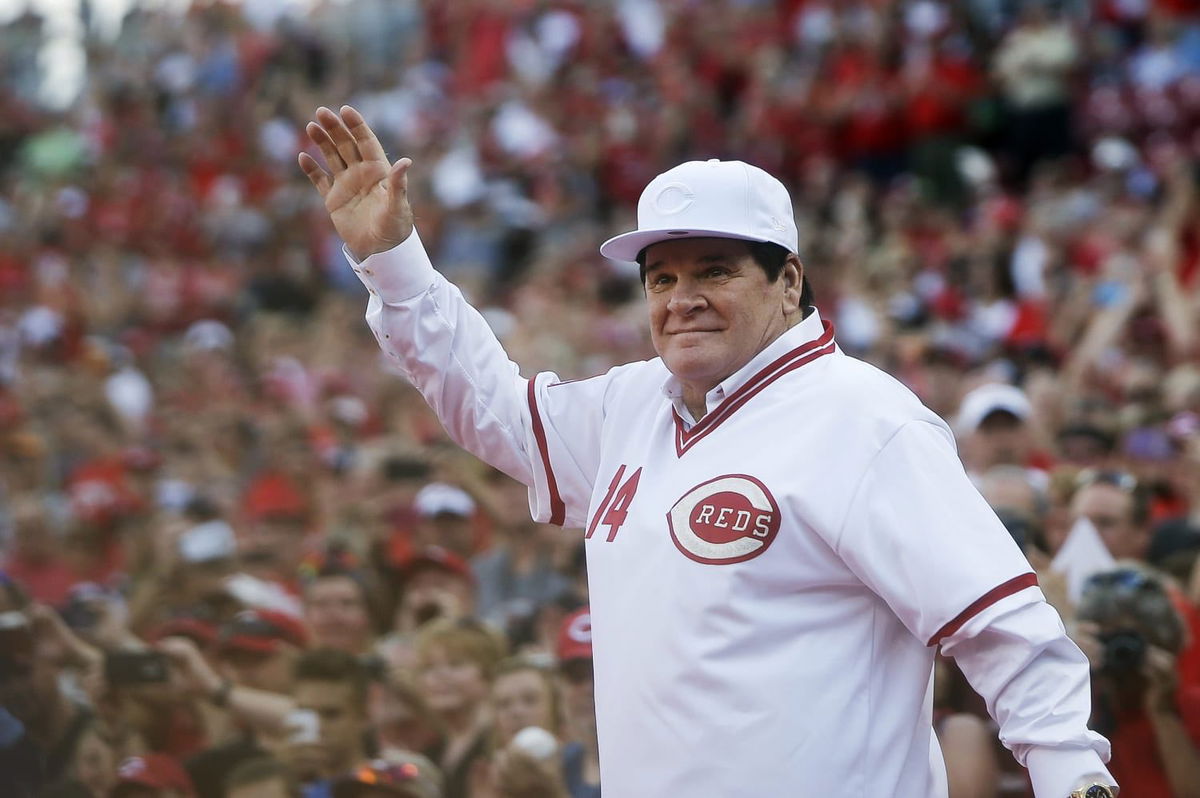

For generations of baseball fans, Pete Rose was a constant. He was tough, driven, and a record-breaking machine. Then came the fall, a ‘permanent‘ exile that seemed like the last chapter. However, the narrative has turned unexpectedly. Was it the echoes of ‘Charlie Hustle’ at last reaching the commissioner’s ears? Or did the fear of President Donald Trump’s actions contribute to this remarkable turnaround?
Watch What’s Trending Now!
MLB Commissioner Rob Manfred is quite famous for his measured decisions. And given immense public criticism and political pressure, especially from America’s first citizen, Manfred had to pivot. Thus, removing the lifetime ban imposed on Rose seems tactical. Doing so helps him avoid a public relations fight and also fits with changing public opinion. Many liked this decision, but some MLB insiders did not hesitate to share their genuine thoughts.
Among those critics was Ken Rosenthal of The Athletic, who came on upfront and bluntly expressed his objection to the decision. Rosenthal wrote, “Manfred is nothing if not shrewd. He surely did not want to risk the president embarrassing him publicly on social media. He also likely did not want to get on Trump’s wrong side at a time when he is pushing for a direct-to-consumer streaming service for the league, and the migration from broadcast to streaming by professional sports leagues is under government scrutiny.” Is that all there is to it? Um, no.
ADVERTISEMENT
Rosenthal continued, “Also, while Trump is known to be pro-management, it’s not out of the realm of possibility that, if sufficiently annoyed, he could threaten baseball’s antitrust exemption.” But how is Trump coming into the picture? Just a few weeks ago, they had a meeting, and Manfred’s statement about the meeting felt very diplomatic.
“I met with President Trump two weeks ago, I guess now, and one of the topics was Pete Rose, but I’m not going beyond that,” Manfred said. “He’s said what he said publicly, I’m not going beyond that in terms of what the back and forth was.”
To be fair, the halls of baseball are not well recognized for their political impartiality. But what about this? A coincidence? Maybe.
ADVERTISEMENT
A driven fighter whose love of the game was clear, Rose was a force of nature. His reputation used to be set in stone, but now it’s just a question mark that people argue over all the time. So, what will happen now? Perhaps, more debates. But the real question looming over MLB is: will Trump’s impact lessen over time, or will it continue to shape the future of baseball? One thing is for sure: the Pete Rose story is not over yet. It’s a story that will keep going, one of power, forgiveness, and the never-ending fight to define what baseball means to Americans.
At first, Rose got all the attention, but Manfred’s decision had a broader impact. It also lifted the ban from others who were banned from baseball, like the famous Shoeless Joe Jackson.
ADVERTISEMENT
Hall Pass: MLB’s posthumous reinstatement opens door for Joe Jackson
MLB commissioner Manfred truly made a historic decision on Tuesday. After their deaths, Rose, Shoeless Joe, and 15 other deceased athletes were removed from Major League Baseball’s permanently ineligible list. This move recognizes that people who are no longer alive cannot threaten the purity of the game, which means that their nominations for the Hall of Fame can be recognized.
ADVERTISEMENT

Even though there were claims about the 1919 Black Sox scandal, Jackson performed exceptionally well in the World Series. As a White Sox, he hit .375, drove in six runs, and hit their only home run. His batting average of .356 is still the fourth-best in MLB history. Now that the ban is over, Jackson can be considered for the Hall of Fame by the Classic Baseball Era Committee, which will meet in December 2027. For HOF induction, he needs at least 75% of the Committee’s votes.
ADVERTISEMENT
Fans and commentators have had a range of reactions to the decision. Some people think it’s a long-overdue fix, while others believe it should have happened while the players were still alive to give them the credit they deserve. While some say that the timing makes the original bans less critical, others see it as a chance to recognize the players’ contribution to the sport.
Top Stories
Who Are Kyle Tucker’s Parents? All about Mike Tucker and Lisa Fernandez

David Stearns Refuses to Back Down Despite Mega Deals as Mets, Yankees Lock Horns Over $15.5 M Asset

What Is Kyle Tucker’s Ethnicity, Nationality, and Religion? All You Need to Know

Yankees’ $8M Trade Target Slips Away as Brewers Star’s Milwaukee Loyalty Holds Firm, per Insider

Mets Immediately Retaliate After Cody Bellinger failure by Stealing Yankees’ Prime Trade Target

Jackson’s return makes us think again about what he left behind. As the 2028 Hall of Fame induction gets closer, Jackson’s story continues to captivate people and spark conversations about fairness and forgiveness in sports.
ADVERTISEMENT
ADVERTISEMENT
ADVERTISEMENT
ADVERTISEMENT